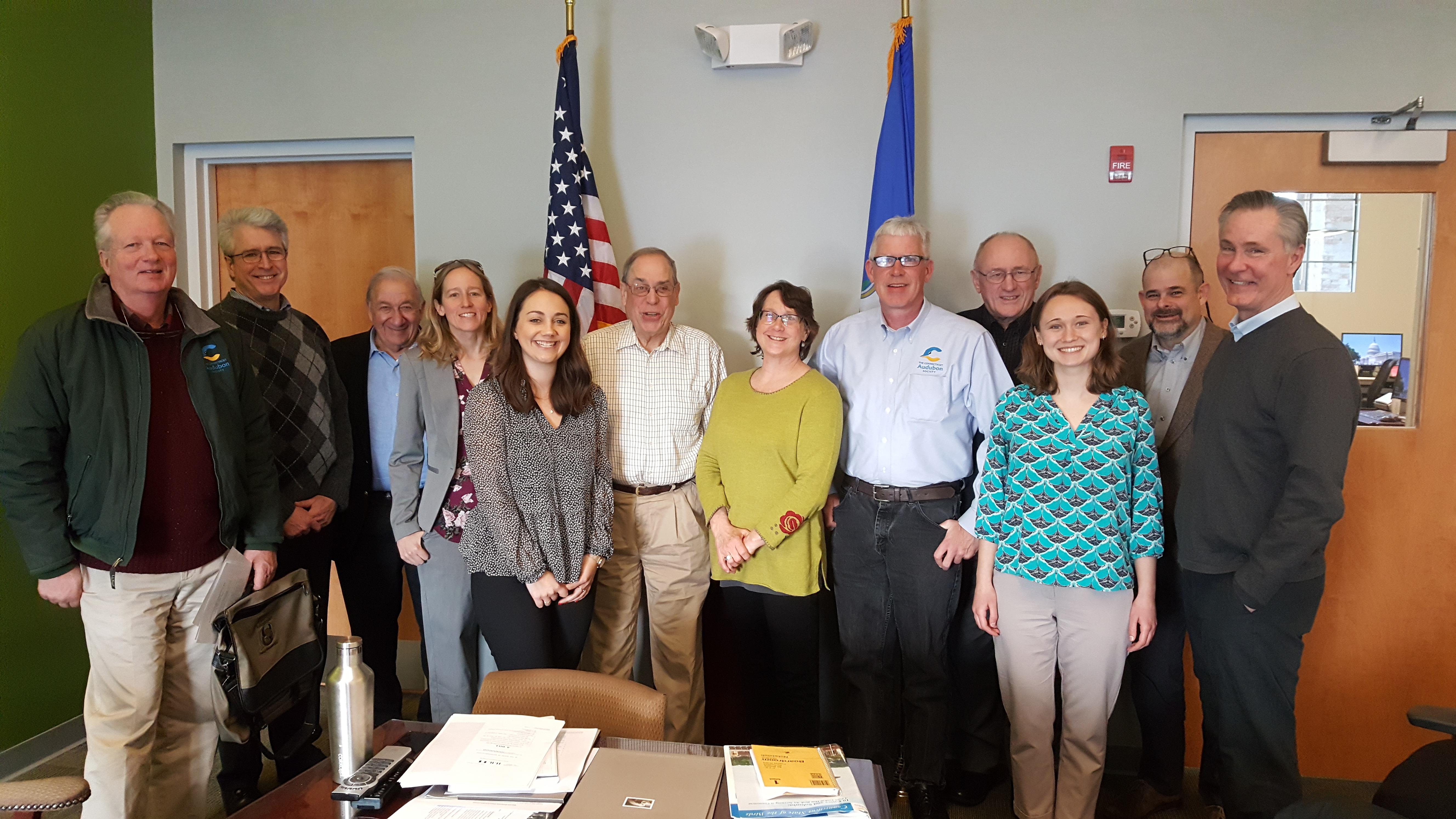Worldwide, seabird populations have declined by 70% since 1950 and are facing an extinction crisis.
Seabirds are some of the most intriguing animals on the planet – Forester’s Terns dive like trapeze artists, Atlantic Puffins are charismatic in their tuxedos and theatrical eyes, and Osprey and Bald Eagles exude a powerful stoicism.
So what's the problem?
Seabirds primarily eat forage fish, which are small fish like herrings and anchovies. They are an important food source of a variety of bird species that can be found in the Long Island Sound including Least Tern, Osprey, and both Red-throated and Common Loon.
Across the globe, many forage fish populations are declining due to ocean warming and overfishing.
You Can Help! Sign the Action Alert Today.
This is affecting the entire ocean food system and the businesses that depend on it. It means seabirds and larger fish have to travel farther and deeper to try to find food. As those fish struggle, it makes it harder for commercial and recreational fishers, too.
Unfortunately, little attention is given to forage fish management. The harvest of many of these species is unregulated (or regulated in some areas but not others) and there is limited data to understand how these fish species are being impacted by harvesting and climate change. While we limit how many larger fish, like salmon and tuna, people can catch to help those populations remain stable year after year, we don’t limit how many forage fish people can take out of the ocean – and big commercial fishing operations have been taking a lot.
And the solution?
A new bill introduced in Congress by Reps. Debbie Dingell (D-MI) and Brian Mast (R-FL) tackles these problems by ensuring adequate protections for forage fish so that the wildlife, people and economies that depend on them can continue to thrive.
The bill amends the Magnuson-Stevens Fishery Conservation and Management Act (MSA), the primary law that governs ocean fish management in U.S. federal waters through eight regional fishery management councils, to include forage fish (e.g. herring, anchovy, sardine, krill and some small crustaceans) for the first time.
Audubon Connecticut, along with the National Audubon Society, Pew Charitable Trusts, American Sportfishing Association, Theodore Roosevelt Conservation Partnership, National Wildlife Foundation, and more supports this legislation.
You Can Too! Sign the Action Alert Today.
On March 7th, Audubon Connecticut and partners had the opportunity to meet with staff from Senator Murphy and Senator Blumenthal’s office to voice concerns about forage fish.

Attendees included representatives from Audubon Connecticut, the Connecticut Audubon Society, National Audubon Society, the Connecticut Ornithological Association, Menunkatuck Audubon Society, Save the Sound, The Maritime Aquarium at Norwalk, and Mystic Aquarium - Sea Research Foundation.
We thank the Senators’ staff for taking the time to learn about the vital role that forage fish play in our oceans.



